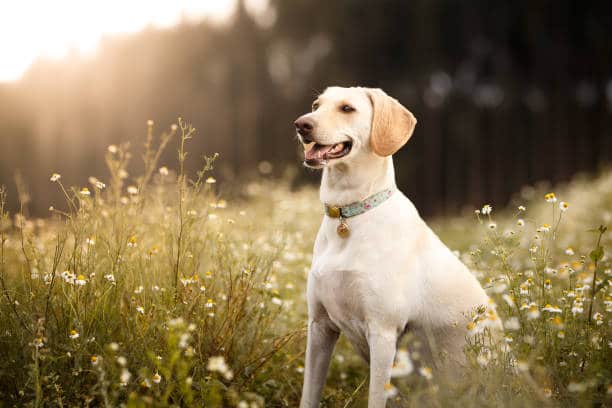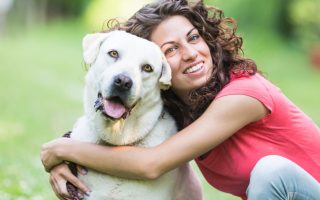Dogs can be your best friend and a family member to their human owners. But they too need special care and attention.
While a walk, a bath and a chew toy certainly feature high on the list of things owners must give their dogs, it is also important to research and read up on how to do dog care for them in more detail.

While dogs love being treated as another member of the family, there are certain things owners must take dog care to remember. Giving them food that does not adversely affect us, in fact food that we might enjoy, is not always a good idea. They have a different metabolic system and their diet is as important as ours. With great love for dog care, also comes great responsibility.
Here’s a list of foods you should never give to your dog in care, even if you like them yourself.
Avocado
No matter how much you love your guacamole and your dog care, never offer the one to the other.
They contain avocados which are extremely harmful for dogs. Avocados contain a toxin called persin which is harmless for humans who are not specifically allergic to them but can be disastrous for dog care.
The toxin is present not just in the fruit but also in the leaves and the bark of the tree, so dogs should be kept away the entire plant, if the owner is growing them at home. They can cause breathing difficulties, stomach upset and fluid build up in the chest. Turns out fruits aren’t always the healthiest option.
Onions
Onions are pretty common in most cuisines be it American or Asian.
They are also a component in everybody’s kitchen. But onions are one reason why a dog’s food can’t always be cooked up the same way humans are.
Onions can destroy a dog’s re blood cells and cause anemia, which may lead to lethargy, dullness, breathlessness, and reduction in immunity among other effects. If it is a particularly large dose, a blood transfusion might even be needed. Onions, raw, dehydrated, cooked or even powdered can produce this effect. They can even prove poisonous if eaten for a prolonged period of time.
Garlic
No matter how much you savor that crispy garlic bread with your pasta, do not bring it near your dog’s plate. Dogs would fear them more than vampires do if they knew what it can do to them. Like you would keep garlic out of the menu before a date, keep it away from your dogs’ plate if you want to keep them from a date with the vet.
Garlic also belongs to the onion family and is a fairly common component in most cuisine, especially Indian. So, garlic pastes and raw garlic are commonly available in kitchens. Accidental consumption must prevented. They have toxins in concentrated quantities as compared to onions. Although the reduction in red blood cells won’t show until a few days later, general breathlessness and dullness will be one of the earliest symptoms. The dog’s urine can turn orange or even red and in extreme cases, blood transfusion may needed.
Chocolate
What can be a better gift for your loved ones than chocolate, we all assume. A cure for all problems to humans, chocolate is most certainly not the same for dogs. It is one of the most commonly known harmful substances to give to your dog. Chocolate contains caffeine, theobromine and methylxanthines that can prove toxic to dogs.
The darker the chocolate, the more harmful it is, because dark chocolate has more methylxanthine than white chocolate.
Even baker’s chocolate and chocolate powder which are very commonly found in family kitchens especially if there are children at home, should be kept out of reach of the pets. If ingested, it can lead to muscle tremors, irregular breathing, vomiting, seizures and even death.
Grapes
All food of the grape family including raisins, are harmful to dogs, for chemicals that are yet unknown to scientists and doctors. But keep them away anyway because they can have dire consequences for your beloved pet, if ingested. Grapes and raisins specifically affect the kidneys. The effects may vary from breed to breed, but they are harmful, in general, for all.
The dogs can also suffer from severe diarrhoea and vomiting along with general lethargy and dullness.
Dehydration and a lack of appetite are also common symptoms. There might be general difficulties with urination because of kidney damage. They should taken to the doctor, immediately, if they accidentally manage to eat grapes because it can even prove fatal due to kidney failure within three to four days.
Macadamia nuts
They are relatively more difficult to come by in usual kitchens. They have also only recently discovered as having harmful effects on dogs. So next time you adoringly hand over that nutty piece of cake to your dog, remember it can be lethal. It is yet unknown as to what particular toxin in these nuts affects dogs adversely, but vets agree that they can be very harmful for our canine friends.
Symptoms may include lethargy, dullness and problems with metabolism. It also affects the hind legs leading to staggering gait and tremors.
Caffeine
Coffee keeps the blues away and while you might find it difficult through your busy day without that daily dose, your dogs cannot given coffee. Coffee contains caffeine which is harmful for humans too in large doses. For dogs it is severely bad. Along with caffeine, coffee also contains methylated xanthine which can be very harmful to your pet.
Bacon
It must seem like it’s sad that all that is comfort food for humans, is not advisable for dogs. But they have their own delicacies and sometimes they shouldn’t given ours.
Bacon, considering it is animal fat is often not thought to harmful to dogs. In general, people think anything nonvegetarian is okay for their dogs. But it isn’t. Bacon is rich in fat and it isn’t only your hips it is bad for.
Excess fat in bacon may cause pancreatitis in a dog, if ingested in larger doses. This may lead to all sorts of metabolic problems and also immune deficiency and weakness in general. Problems related to digestion and nutrition absorption is also common.
Apples
Another fruit that is not a healthy option for your dog apples. Especially the cores that may accidentally ingested if the dog is eating a whole apple can be very harmful.
The cores of an apple as well as a lot of fruits belonging to the same family like apricots, peaches and plums contain cyanogenic toxins that can prove disastrous for a dog’s metabolism.
Some of the common symptoms are dizziness, breathlessness and hyperactivity. They might begin to hyperventilate and have seizures. If you are very unlucky, then in some breeds they may even cause shock or coma.
Alcohol
A trip to a vineyard may be very aesthetically pleasing as well as treat for your taste buds, but there is plenty threat to your dog’s metabolism in there. Like apples, alcohol too prohibited for dogs. If you want to enjoy that cool sip of wine with one of your friends, pick a human. Even drinks and medicines containing traces of ethanol which aren’t strictly categorised as alcohol should be kept away from your pets.
Dogs are far more sensitive to ethanol than we are. They can intoxicated with very little and must monitored if it accidentally happens. In severe cases, there can be vomiting and other digestive problems. Worse, there can be seizures and the dog can go into shock. Large quantities may also prove fatal.
Candy and Gum
Dogs bond best with little children in general. Often families want to take in a puppy as a companion for their kids to grow up together. But while you may give that colorful and yummy candy treat to your kids but it is a very bad idea to do the same for your dog.
This is for the same reason that you cannot give them toothpaste to brush their teeth with. Candy, gum, toothpaste are sweetened with an artificial sweetener called xylitol. Xylitol can seriously increase insulin production in your dog and lead to all kinds of digestive issues. The blood sugar of your dog may drop and the liver may damaged. In severe cases, there might even be liver failure.
In addition, it is also possible that they will choke on the gum or on little balls of candy because their teeth are not the same as ours.
Yeast dough
Next time you think of baking your dog that beautiful birthday cake, think twice. Yeast commonly used for baking can be very harmful to dogs. Bread dough if ingested by dogs, can ferment inside the stomach and result in severe stomach trouble. As the yeast multiplies, alcohol is produced which can cause things to get worse. Expansion in the stomach can progressively result in symptoms that get worse increasingly.
They may show mild symptoms like vomiting and dysentery if monitored and attended to properly. But in severe cases it may cause shock and seizures, causing the dog to go into a coma and even prove fatal.







